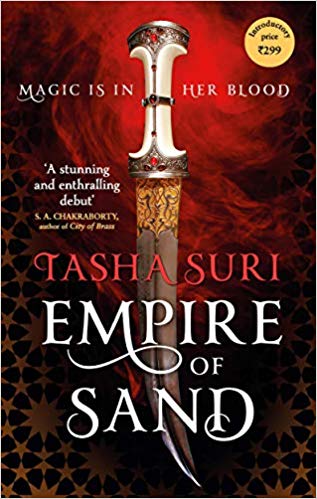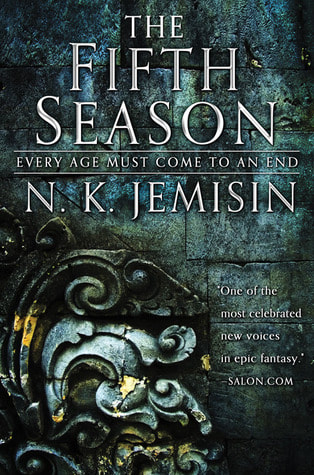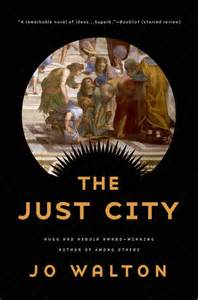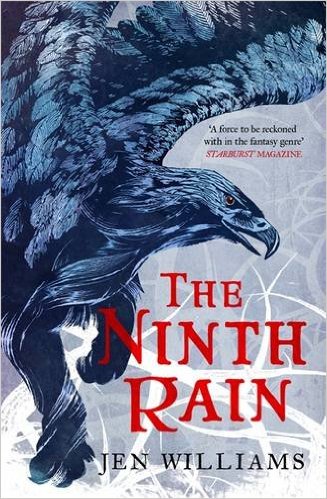|
Tasha Suri, Empire of Sand, Orbit, 2018. Audiobook available on Audible. I'm a year late to this party but despite a rocky start, I really enjoyed Empire of Sand by Tasha Suri, a stand-alone fantasy novel set in a world inspired by Mughal India. Mehr is the daughter of the governor of the province of Irinah and of an Amrithi woman who has left her to be raised by her father and her step mother. Her mixed heritage makes her undesirable in the Empire, as the Amrithi people are despised and hunted. She practices secretly her ancestral rites. But one day, her gifts are noticed by the Maha, the spiritual leader of the Empire, and she'll have no choice but to be married into his sect. At first glance, there are so many reasons why this book wouldn't be my cup of tea. The main character is a naive, privileged young woman. She sacrifices herself nobly to protect her little sister. The man she has to marry proves himself as respectful despite their circumstances. The bad man is very, very bad. Honestly, I had a rocky start and almost DNFed, but I'm glad I didn't because I realised that underneath that surface that could make it look like YA with strong hints of the first Farseer book, there was more. This is not YA, and not a Hobb look-alike either. What makes me glad that I didn't DNF is how Suri wonderfully dealt with the theme of having a mixed heritage, and how she dealt with the question of genocide, of caste, and of cultural loss when you don't belong to the dominant ethnic group. The question of freedom was also wonderfully dealt with, showcasing different types of freedom and servitude you can choose or that are forced upon you, by people or by circumstances. Suri studied that theme with great delicate little brushstrokes, that offers a nuanced picture in the end. I also very much enjoyed how Suri dealt with the complicated relationships with an absent parent. The characters were a bit hit and miss for me. Mehr is at first very naive, and privileged, a mix that I don't enjoy. But this is also a coming-of-age novel and there was a very fast and very steep learning curve for her. In the end, I probably related to her less than another reader who may enjoy younger characters more than I do. Nonetheless, she was a compelling character, with a real strength, who grew up wonderfully as the novel went on, making difficult decisions. I really enjoyed many aspects of the others characters, though I must confess that I regret some aspects felt a bit rushed to me. In particular, I'd have liked the individual relationships of some characters with the Maha to be more developed, but we are constrained by the fact that the entire novel is from Mehr's point of view. Nonetheless, I grew attached to those characters, and I kept on reading because I wanted to know how things would turn out for them. The plot remains a standard plot when you have the equation: coming-of-age + magic + outsider main character. Nonetheless, I really enjoyed the fact that Suri didn't choose the easy way out for many situations, like Mehr's relationship to her mother or her relationship to her husband. The type of magic is extremely original, based on a physical communication, through dance, with magical creatures. The pace is sustained, and because it is a stand alone novel, Suri doesn't drag the story needlessly with subplots, tertiary characters or secondary quests. Empire of Sand is a very successful novel. If this is the kind of novels you enjoy, don't hesitate and buy it or get it on loan in a library. Nonetheless, even if this isn't the kind of novels you enjoy, I think that you could be very pleasantly surprised by it, and that you should give it a try. Another novel set in this world will be published in November 2019, Realm of Ash, and I'm looking forward to reading it. If you've liked Empire of Sand, you may also like
Comments are closed.
|
All reviews are spoiler free unless explicitly stated otherwise.
I only review stories I have liked even if my opinion may be nuanced. It doesn't apply for the "Novels published before 1978" series of blog posts. Comments are closed, having neither time nor the inclination to moderate them. |
WHAT IS THE MIDDLE SHELF?
The middle shelf is a science-fiction and fantasy books reviewS blog, bringing you diverse and great stories .
PLEASE SUPPORT AUTHORS.
IF YOU LIKE IT, BUY IT. |
ON THE MIDDLE SHELF
|
KEEP IN TOUCH WITH THE MIDDLE SHELF
|







 RSS Feed
RSS Feed
